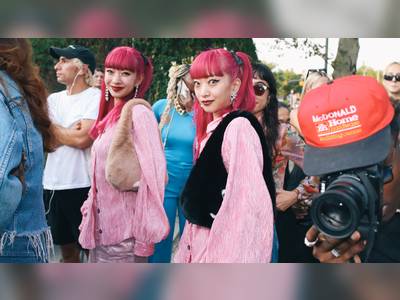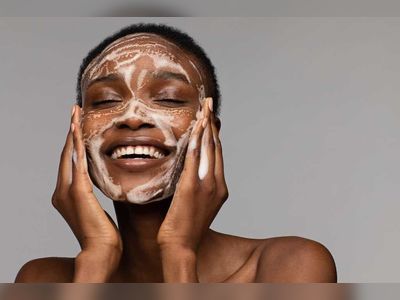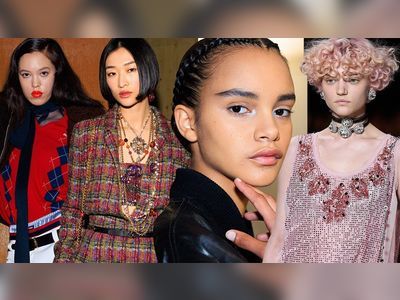Smiles at the attractive young woman at the
counter, and produces a long list, saying he needs all the items listed. The
girl scans the list, looks at him and incredulously asks: "All this?". He says
yes, and before she could ask, says that he has the all cash needed in his bag.
The girl rushes off, only to return with the store manager.
On questioning by the store
manager, the middle-aged man tells a strange tale that traverses two cities. He
is a driver for a upper class household in Delhi. His madam has asked him to go
to Mumbai and buy the list of cosmetics listed for the upcoming wedding in the
family. He has parked his car at the Delhi airport and had come to Mumbai to
pick up the items listed (or should we say, fill out the prescription), only to
fly back to Delhi by the noon flight. In time for the evening Sangeeth function.
The story, as incredulous as
it may sound, filtered upwards in the organisation and is part of the store's
folklore. Are up market women willing to go that far for a brand of cosmetic,
when we have been taught that cosmetics are but skin deep? We may forgive the
fact that cheap airline tickets may have led to that wasteful travel, but
sending the driver all the way to Mumbai, to pick up a couple of hundred
thousand rupees worth of cosmetics, does sound a little farfetched.
Is this the way the other half
lives? Is this the ultimate in conspicuous consumption that we read about in the
glossies? Or is it just a random incidence that will never happen again? If you
were to do a simple analysis of the type of cosmetics sold, you would find
identical products being offered by brands across very different price points.
So a skin moisturizer is available from price points of Rs 350 to Rs 3,500. Are
they really that different? Or is it just marketing, packaging and communication
at work?
Cosmetic marketing,
experts tell us, has transformed in the last two decades, with the marriage of
pharmaceuticals with cosmetics, leading to the birth of a new science that goes
by the name 'cosmeceuticals'. Do consumers really know the
difference?
Cogito Consulting,
DraftFCB Ulka's consulting arm, decided to explore this uncharted territory,
speaking with 30 'uber uber' class women across the top four cities of India.
The interviews were conducted in a non-research environment, through executives,
and not the run of the mill field interviewers. Blame it on the internet, on the
growth of upper end women magazines, or the higher levels of education of the
uber class women, but these women know what they want. There was active
absorption of information, especially about cosmetics and cosmeceuticals.
Cosmetics continue to play a key role in letting these women 'feel good' about
themselves. And the more they spend the better they
feel.
These
women are quite knowledgeable about the various upmarket brands, and usually
have a small basket of brands that they trade across. They normally do not go
outside their basket.
The
women insist that 'efficacy' is the top criterion for their selection of their
brands. Trial takes place usually through word of mouth from friends or
beauticians, but repeat is driven by performance of the brand.
For these women performance is
key, in addition to packaging, branding, form, colour, etc. These women are
willing to pay a 500% premium, but give me a 50% extra performance. This harks
back to the age-old traditions of our country. Ingredients like sandal oil are
highly treasured, are rare and command a high price premium. Indian brands have
claimed exotic ingredients like diamond ash (Bhashma), powder of real pearls
(did Angeleina Jolie learn to apply caviar on her skin from our ancient
scriptures?) and even 24 carat pure
gold.
The word cosmetic has its
origin in the Greek word 'cosmos' which does not mean beauty, but means 'order';
by beautifying we are bringing ourselves nearer the cosmic orderly truth. The
British did not approve of cosmetics, with Queen Victoria banning the use of
cosmetics by ladies, so we get a different take from the modern Oxford English
dictionary: Cosmetic n. a substance for beautifying the complexion etc. adj:
improving the appearance;
superficial.
It was Charles
Revson, the legendary founder of Revlon cosmetics who said: "In the factories we
make cosmetics, in the drug stores we sell hope." Well, women want to buy a lot
more than just hope.
It is apt
to remember the words of Claude Hopkins, the legendary copywriter, who is
reported to have said this about OTC medicines: "We don't sell medicines, we
sell results."
Now that the
difference between cosmetics and medicines has been bridged, may be the day is
not too far that medicines will be sold as 'hope'.

Phil Oh’s Best Street Style Photos From the New York Fashion Week Spring 2023 Shows
This season New York Fashion Week has brought in a worldwide crowd of stars thanks to a packed season that even includes shows...










